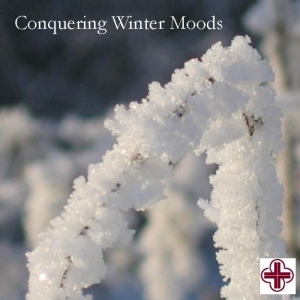January, February, March, and even April see higher incidences of depression and related emotional problems and it’s not all that hard to figure out why. Emotional peaks are often followed by emotional valleys. If year-end holiday celebrations are a time of joy, satisfaction, and intimacy, then it is likely that the return to normalcy involves the return to a more mixed emotional life.
Similarly, if we expected that the holidays would bring emotional highs that they failed to deliver, our sense of disappointment can be overwhelming. Post-holiday analysis may not only lead us to conclude that we found less emotional reward than we had anticipated, but a variety of factors may have left us with a regrets. The family squabble, the weight gained, the time off not taken, the expenses incurred – all can come to roost in the weeks and months that follow.
Environmental factors also play a part. Shorter days and overcast skies deprive us of mood lifting sunlight. Frigid temperatures limit our outside activities and physical exertion. An overfull work, school, and home life with few breaks can wear us out physically, emotionally, and spiritually.
Fortunately, there is a good deal of research on how to climb out of our new year’s emotional valleys. Here’s a short list of what we can do:
- Eat right – we want to stay away from fatty, sugary, starchy foods. A low fat, high fiber, vitamin and mineral rich diet will improve our mood (it’s a biochemical thing).
- Sleep right – the average person needs about eight hours; we need to get as much as we need to feel rested.
- Exercise – we’ll have more energy, be healthier, and increase our self-esteem if we get at least thirty minutes of physical exercise each day. We can dust off the exercise equipment in the basement or head down to the local “Y” or health club.
- Stay involved – we want to identify the people in our lives who lift our spirits and spend time with them. On the other hand, we want to avoid those people who continually bring us down.
- Meditate and/or pray – spiritual centeredness can lead to emotional centeredness. Investing ourselves in strengthening our spiritual life is a powerful antidepressant.
- Take a break/add variety – we can vary our normal schedule, schedule a getaway weekend, take and adult education class, or introduce any number of other changes into our lives to break up the post-holiday routine. Addressing our nutritional, fitness, or spiritual concerns with a consultant might help. Or finding a good individual, couple, or family therapist who can help us deal with our own personal or relational concerns may be called for.
Though post-holiday depression may be transitory, with Spring assisting in a return to more pleasant feelings, it is not necessary to simply suffer through the first four months of the year. Taking some of the steps above will make a significant positive difference in our short term and long emotional health. If you are concerned about post-holiday depression take a free, anonymous screening at http://screening.mentalhealthscreening.org/sicc
Samaritan Interfaith inspires hope, facilitates change and creates lasting impact on individuals, families and faith-based organizations. We offer Spirit led, compassionate care through counseling, education and consulting.



Comments are closed.